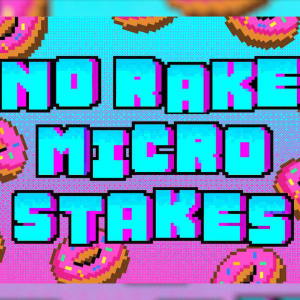Poker can make your heart rate spike the moment you sit down at the table. Whether you are in a small home game or grinding a long online session, staying calm is one of the best skills you can develop. It helps you read your opponents, think clearly, and avoid mistakes that come from acting on emotion. While the best players are skilled in strategy, they’re also skilled in staying steady under pressure. The real goal is to control and handle the emotion instead of just suppressing it.
Start by Controlling Your Surroundings
One of the fastest ways to lose your cool at the table is by letting your environment control you. It’s easy for distractions to throw you off your game. Your phone could be buzzing, your chair might be uncomfortable, or you could just be hungry. Maintaining a calm environment before play has been shown to improve decision-making at the table.
Take Regular Breaks
If you play long sessions, breaks are actually more of a necessity than you’d think. They help your mind reset, reduce tilt (that’s what the industry calls the emotional frustration that leads to poor decisions after a setback), and refresh your energy. A short walk, a glass of water, or even stretching can help you return to the table feeling in control. Breaks are also a good time to reset after a losing streak. It means you won’t let frustration guide your next hand. It’s better to step away for five minutes than to chase losses in a fog of emotion.
During breaks or slower moments, some players choose to play light games elsewhere to reset their focus. They might browse a few mobile games, stream a short video, watch a poker hand breakdown on YouTube, or try out a game on sites that offer a wider variety of games like yaysweepstakes.com. It offers casual play, including table games and live dealers, in a low-pressure setting. Once they’ve had a moment to reset, they can return to the poker table feeling more focused and refreshed.
Breathe Before Making Decisions
A small habit that can change your game is taking a few deep breaths before acting. It helps you slow down, clear your thoughts, and give yourself space before clicking call or sliding chips into the pot. If you feel your hands shaking or your chest tightening after a big bet, that is your body telling you to slow down. Focus on your breath for a few seconds. It’ll help keep your decisions aligned with your strategy rather than your emotions.
Learn to Accept Losses
Poker is a game of ups and downs. Even when you make the right decisions, the cards won’t always fall your way. One of the biggest triggers for tilt is not accepting this truth. Remind yourself that variance is part of poker. When you lose a big hand after making the right call, take a moment to acknowledge your good decision rather than focusing only on the result.
Focus on What You Can Control
You can’t control the cards, and you certainly can’t control what others do, but you can control your decisions and your reactions. By focusing on your own choices, you keep your mind clear of frustration over things you can’t change. This mindset helps you stay calm, even if another player is loud or if you lose a few hands in a row.
Watch Your Body Language
Staying calm isn’t just about your mind. Your body reflects your mental state, and your opponents can pick up on it. Sit with a relaxed posture and controlled breathing. It’ll help you project calmness and also help you feel calm internally. If you notice yourself fidgeting or slamming chips down, take a moment to adjust your posture and reset your breathing.
Develop a Routine Before You Play
Having a simple pre-game routine can help signal to your brain that it’s time to focus. This can be as simple as making tea, listening to calming music, or reviewing a hand history for a few minutes before you start your session. A routine helps you settle in and enter the game in a calm mindset. It reduces the chance that outside stress will follow you to the table.
Practice Emotional Control Off the Table
Emotional control is like a muscle. The more you train it, the stronger it becomes. Activities like meditation, regular exercise, and good sleep can improve your ability to stay calm during tense moments. Learn to pause before reacting in everyday situations. This control will translate directly to your poker game.
Conclusion
Staying calm at the poker table is a skill that improves your game and makes each session more enjoyable. By controlling your environment, focusing on your breath, accepting variance, and taking regular breaks, you can avoid emotional decisions that cost you chips. Whether you’re grinding online or playing live, calmness can be your hidden edge. Building these habits now will help you enjoy poker with a clear mind and a stronger strategy, one hand at a time.


